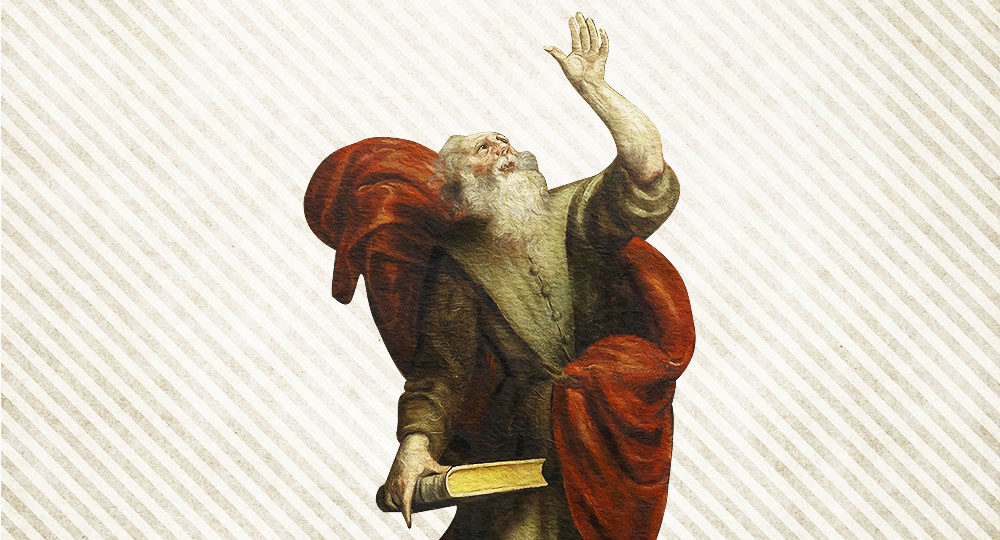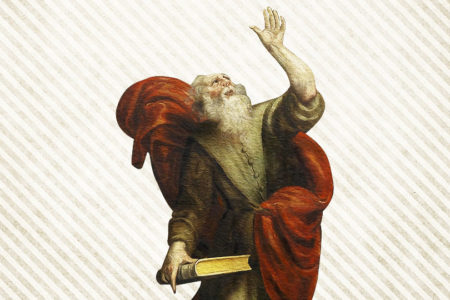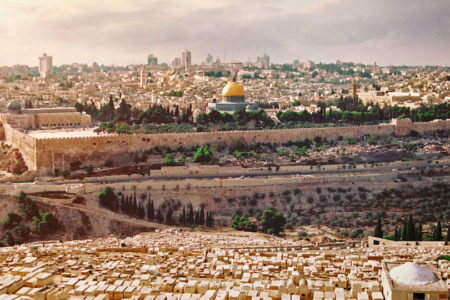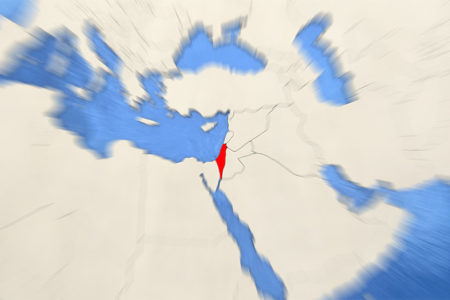Ezekiel: The Times, The Man, The Book
The prophet Ezekiel burst onto the scene during Jerusalem’s darkest days at the end of the sixth century BC. Then, as now, the Middle East was in crisis.
In fact, the Middle East had been in crisis for most of the eighth and seventh centuries BC due to the rampaging armies of the Assyrians, Egyptians, and Babylonians and because of Israel and Judah’s rebellion against God.
The Times
Assyria dominated the early half of the eighth century BC, conquering and deporting the 10 northern tribes of Israel in 721 and almost doing the same to Judah in 701. Then Babylon ascended, tipping the scales in 612 by conquering Assyria’s capital, Nineveh.
Three years later, the Babylonians defeated an Egyptian-Syrian alliance at Harran in 609 and again in 605 BC at Carchemish. They pursued the fleeing Egyptian armies southward into Judah, taking Jerusalem in 605.
To protect his right to the throne, General Nebuchadnezzar immediately withdrew from Jerusalem when he received word his father the king had died in Babylon. But he did not leave empty-handed. He took Daniel and other upper-class Judeans with him.
THE MOST HIGH GOD
Read more about the times in which Ezekiel and Daniel lived in The Most High God by Renald Showers.
Eventually, Jerusalem rebelled against the Babylonians and was again defeated in 597 BC. This time the Babylonians dragged Ezekiel into captivity, along with 10,000 other Judeans (2 Ki. 24:14). Ezekiel lived with the common Jewish captives approximately 50 miles south of the capital city of Babylon, ministering to them for 22 years (593–571 BC).
The prophet Daniel lived in the city of Babylon in what today is the city of Hillah in Iraq, approximately 550 miles from Jerusalem, with a ministry to his captors.
Jeremiah, the third influential prophet during this period, stayed in Jerusalem, ministering to the Jewish people left behind.
Adding to the turmoil of the times, the Persian kingdom attacked and vanquished the Babylonian Empire in 539 BC. We don’t know if Jeremiah (considered the oldest of the three prophets) and Ezekiel were still alive. We know Daniel was summoned to King Belshazzar’s feast the night Babylon was conquered (Dan. 5) and that he was involved in the new Persian government (chap. 6).
The Man
We know little about Ezekiel prior to the start of his ministry, and he is not mentioned anywhere else in the Bible.
Ezekiel never mentioned Jeremiah, but he referred to Daniel as righteous and wise (Ezek. 14:14, 20; 28:3), though he did not mention his ministry or writings.
Compared to the other prophets, Ezekiel was asked to perform the greatest number of startling, dramatic, symbolic feats to communicate God’s message.1 For example, God commanded him to lie on his left side for 390 days and on his right side 40 days to “bear the iniquity” of Israel and Judah respectively, “a day for each year” (4:5–6). The Lord restricted what Ezekiel ate and drank during that time as an object lesson to those who would suffer starvation (vv. 9–13). God also told Ezekiel his wife would die the year before the holy city’s destruction but that he should not mourn for her (24:15–18) because God would not mourn the death of His wife, Jerusalem.
Ezekiel descended from the priestly line of the high priest Zadok, whose heirs became the officiating priests from King Solomon’s time onward. He began his ministry at age 30, as did all Levitical priests and Jesus of Nazareth (Ezek. 1:1). His first prophetic act was to remain silent for seven days, which was the time it took to dedicate a Levite into the priesthood (3:15).
Ezekiel began his ministry in 593 BC, and his final message is dated 571 BC (29:17), which means he ministered about two years longer than the standard 20 years for Levitical priestly service.2
Ezekiel means “God strengthens,” a rather appropriate name for the ministry God called him to and the situation the people of Judea faced. More than 90 times in the book of Ezekiel, he is called “son of man,” which was the title Jesus preferred when referring to Himself. In both cases, the purpose was to identify with humanity.
Ezekiel rivals Jeremiah for the title “The Weeping Prophet.” Jewish scholars call him the “Father of Judaism.”3 They call Abraham the “Father of the Hebrew Peoples”; Moses, the “Father of the Jewish Nation”; Elijah, the “Father of the Reforming Prophets”; Daniel, the “Father of Predicting Prophets”; and Ezra, the “Father of the Scribal Office and the Sanhedrin.”4
Despite the horror of deportation, once the Jewish people settled in Babylon, they eventually led relatively pleasant lives. They were free to build homes, write back to Judea, establish businesses, and enjoy their Jewish culture. Their comfort is reflected in the fact that only 43,000 of the estimated 2.5 million people in captivity chose to leave when allowed to return to their land in 539 BC. (See Ezra 2:64–65.)
Though comfortable in Babylon, many still longed for their homeland, as illustrated by the mournful words of Psalm 137:1–6:
By the rivers of Babylon, there we sat down, yea, we wept when we remembered Zion. We hung our harps upon the willows in the midst of it. For there those who carried us away captive asked of us a song, and those who plundered us requested mirth, saying, “Sing us one of the songs of Zion!” How shall we sing the Lord’s song in a foreign land? If I forget you, O Jerusalem, let my right hand forget its skill! If I do not remember you, let my tongue cling to the roof of my mouth—if I do not exalt Jerusalem above my chief joy.
The Book
The theme of Ezekiel is the glory of the Lord. The other three major prophets have similar themes: Isaiah, the salvation of the Lord; Jeremiah, the judgment of the Lord; and Daniel, the sovereignty of the Lord.
Prophecy. Ezekiel is unique among the prophetic books for the number of prophecies (13) introduced by dates. The dates are chronological except for Ezekiel 29:17, which jumps ahead to 571 BC. This anomaly may reflect Nebuchadnezzar’s extended siege of Tyre before finally attacking Egypt in fulfillment of Ezekiel 29.5
The book is organized by topic and time:
Chapters 1—3: Ezekiel’s call, before 586 BC.
Chapters 4—24: Ezekiel’s condemnation of Judah, 586 BC.
Chapters 25—32: Ezekiel’s condemnation of the nations, 586 BC.
Chapters 33—48: Ezekiel’s country restored, after 586 BC.
A number of famous passages include the following:
The “wheel within the wheel”—Ezekiel 1 (cf. 3:22; 8:4; 10:1; 43:1)
The “cedar branch” Messianic passage—Ezekiel 17:22
The “Shiloh” Messianic passage—Ezekiel 21:27
“David reigns” Messianic passage—Ezekiel 34:23
Glorious return through the Eastern Gate—Ezekiel 43:1–4
The Battle of Gog and Magog—Ezekiel 38—39
The Millennial Temple—Ezekiel 40—48
Several of Ezekiel’s prophetic concepts reoccur in the book of Revelation: the four cherubim with four faces (Ezek. 1; Rev. 4); the eating of the scroll (Ezek. 3; Rev. 10); coals from the altar used in punishment (Ezek. 10; Rev. 8); four apocalyptic evils that parallel the four horsemen (Ezek. 14:21; Rev. 6); Gog and Magog (Ezek. 38—39; Rev. 20); and a river flowing from Jerusalem (Ezek. 47; Rev. 22).
Theology. The book also addresses several key points of theology. Ezekiel warned the Jewish people Jerusalem could fall because of their sin, contrary to their assumption God would supernaturally deliver them, as He delivered them from the Assyrians in 701 BC. But despite the Israelites’ defeat, God promised to be with them in captivity, demonstrating that He is not merely a local deity effective only in Judea.
The book also teaches the new birth, the New Covenant, and God’s everlasting covenant with Israel (Ezek. 11:19–21; 16:60; 36:26–27; 37:26). It teaches God is the source of spiritual life and that He will give His people a new heart, just as He breathed into Adam the breath of life (36:26–27). He will resurrect their dead bodies from the Valley of Dry Bones (37:1–14), and He will cause a life-giving river to flow from the Messianic Temple in Millennial Jerusalem (chap. 47).
The book concludes with the glorious statement, “And the name of the city from that day shall be: THE LORD IS THERE” (48:35). This final verse summarizes the greatest story ever told: When all sin is dealt with and only the redeemed are honored on this planet, the city of Jerusalem (The City of Peace) will also be known as Jehovah Shammah, which means “THE LORD IS THERE.”
ENDNOTES
-
-
- Kenneth L. Barker, ed., The NIV Study Bible (Grand Rapids, MI: Zondervan, 2011), 1335.
- Ibid., 1336.
- Charles Lee Feinberg, The Prophecy of Ezekiel: The Glory of the Lord (Chicago, IL: Moody Press, 1969), 12.
- The phrase scribal office refers to the fact that, particularly under Ezra’s example and leadership, the act of “writing” copies of Scripture evolved into “interpreting” and “teaching” Scripture (Ezra 7:6, 10). The Jewish Sanhedrin evolved from the Great Assembly, which Ezra, by tradition, organized to maintain proper interpretation of Jewish law because the king of Persia commissioned him to enforce the Mosaic code over the province of Judea (vv. 24–26).
- Adele Berlin and Marc Zvi Brettler, eds. The Jewish Study Bible (Oxford, England: Oxford University Press, 1999), 1044.
-








Excellent review.